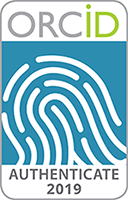The InfoEd Animal Facility Management supports the animal care operations of the Center for Comparative Medicine including animal ordering, husbandry, census, and billing of animal facility protocols. UConn Health began using this system effective July 30, 2020 and it became available to investigators on August 31, 2020.
How To Materials
Listed below are various self-service handouts and instructional sheets with simple instructions on how to perform various functions within the Animal Facility / CCM module. Other protocol submission and review materials are covered in the Lab Animal Use / IACUC module.
For technical issues with InfoEd, please email era-support(at)UConn(Dot)edu, call 860-486-7944 and leave a message, or chat with us through the OVPR or InfoEd websites during normal business hours, 8:00 AM – 4:30 PM weekdays.
Dear Colleagues,
In the summer of 2018, the National Science Foundation (NSF) launched an innovative competition, the NSF 2026 Idea Machine, to crowdsource big challenges and big ideas that could help tackle them. The Idea Machine aimed to set the stage for breakthrough research in science, technology, engineering, and mathematics (STEM) and STEM education through the nation’s 250th anniversary in 2026 and beyond. NSF received around 800 entries from established researchers, students, teachers, and even high school and middle school students from all across the country. Those 800 big ideas have now been narrowed down to seven finalists, which were announced last week.
As we continue to work towards fulfilling President Katsouleas’ bold vision to boost research, scholarship, and creative works at UConn, I encourage you to visit the NSF 2026 Idea Machine site and learn about the program’s goals and the recently selected finalists. This provides UConn’s research community with an opportunity to see what is next for the NSF’s long-term agenda and align our activities based on our existing and emerging strengths.
Thank you for your continued commitment to grow UConn’s profile in research, scholarship, and the arts.
Cheers,
Radenka
Dr. Radenka Maric
Vice President for Research, Innovation and Entrepreneurship
UConn/UConn Health
Professor in Sustainable Energy
438 Whitney Road Ext., Unit 1006
Storrs, CT 06269
Storrs: 860.486.3621
UCH: 860.679.2230
research.uconn.edu
To the UConn/UConn Health research community:
The Council on Government Relations (COGR) has issued an alert regarding recent situations where researchers have attempted to export research materials abroad. The FBI and other federal law enforcement agencies have increased their surveillance efforts to identify transport of research materials and verify that those exports comply with federal laws. These efforts are believed to be part of a nation-wide enforcement action to control the transport of biological materials that may present a threat to our national security and/or reduce the theft of intellectual property developed in the US, much of it with federal funds.
Transporting certain materials may require import/export permits or other documentation from federal agencies, including US Customs and Border Protection (CBP), the FDA, USDA, Fish and Wildlife, and the CDC.
Anyone with questions should contact the applicable federal agency or the UConn Export Control Office (exportcontrol@uconn.edu) for assistance.
Related news:
– https://www.universalhub.com/2019/chinese-cancer-researcher-not-allowed-leave
– https://www.universalhub.com/2019/chinese-researcher-nabbed-liquid-filled-vials
Wesley G. Byerly, Pharm.D.
Associate Vice President
The National Institutes of Health (NIH) is part of the U.S. Department of Health and Human Services and is the nation’s medical research agency. For over a century, NIH has been making important discoveries that improve health and save lives. NIH is comprised of 27 Institutes and Centers. Each has its own specific research agenda, often focusing on particular diseases or body systems. All but three of these Institutes and Centers receive their funding directly from Congress, and administer their own budgets.
NIH and other Public Health Service Agency applications may be submitted through either ASSIST or Grants.gov Workspace. Submission via ASSIST is strongly recommended.
Useful Links:
NIH Website
Program Deadlines
Unsolicited Program Applications – Parent Announcements
NIH Policies and Guidance
NIH Application Guide
The Application Submission System & Interface for Submission Tracking (ASSIST) system is used to prepare and submit applications electronically to NIH and other Public Health Service agencies. Prior to using ASSIST, applicants should identify a Funding Opportunity Announcement (FOA) to which they would like to apply. FOAs are posted in the NIH Guide to Grants and Contracts and/or in Grants.gov each of which has robust search capabilities. The FOA text will indicate whether ASSIST can be used to apply to that opportunity.
Active Grants.gov and eRA Commons credentials are required to prepare and submit applications using ASSIST.
Useful Links:
Grants.gov Account Registration
Login to ASSIST
Funding Opportunities
ASSIST User Guide
The Research.gov Proposal Preparation and Submission Site will provide the ability to create, submit, track, and update proposals associated with active NSF funding opportunities (initially for Full, Research, non-collaborative proposals only). This furthers an NSF goal of providing quick access to proposal information and grants management services in one location in Research.gov. The goals of this system are to provide a modernized, intuitive environment for proposal preparation and submission, reduce administrative burden via real-time compliance checking; provide online help tips and notes; and incorporate a proposal wizard that walks users through the proposal setup process.
Research.gov’s new proposal preparation system is now available for preparing and submitting full research non-collaborative proposals.
Useful Links:
Research.gov
Research.gov Account Registration
Login to Research.gov
The National Science Foundation (NSF) is an independent federal agency created by Congress in 1950 “to promote the progress of science; to advance the national health, prosperity, and welfare; to secure the national defense…” it is the funding source for approximately 20 percent of all federally supported basic research conducted by America’s colleges and universities. NSF is the only federal agency whose mission includes support for all fields of fundamental science and engineering, except for medical sciences. It is tasked with keeping the United States at the leading edge of discovery in areas from astronomy to geology to zoology. General information on NSF programs, guidelines and policies can be found on the NSF website.
Workspace is a tool for organizations to apply for federal grants in Grants.gov.
Get Started on Your Workspace Application
The Office of the Vice President for Research would like to share some information regarding data sharing with researchers who may be affected.
The National Institutes of Health (NIH) is requesting comments on the draft NIH Policy for Data Management and Sharing and Supplemental Draft Guidance.
NIH will be hosting an informational webinar on the draft NIH policy and guidance on Monday, December 16th from 12:30-2:00 PM ET. The purpose of the webinar is to provide information on the draft policy and answer questions about the public comment process.
Submit your comments to NIH by January 10, 2020. Additional information can be found in this NIH blog post. Questions about the draft may be sent to the NIH Office of Science Policy at SciencePolicy@od.nih.gov.
For questions, please contact Research Compliance Monitor, Ellen Ciesielski at 860.679.6004.

 The InfoEd eRA Portal is integrated with ORCID®. ORCID iDs are unique identifiers assigned to individual scholars and researchers. ORCID provides a persistent identifier – an ORCID iD – that distinguishes you from other researchers and a mechanism for linking your research outputs and activities to your iD. Using an ORCID allows your manuscripts, grants, and other scholarship to be more discoverable and integrated within larger research networks. Faculty, staff and students at the University of Connecticut
The InfoEd eRA Portal is integrated with ORCID®. ORCID iDs are unique identifiers assigned to individual scholars and researchers. ORCID provides a persistent identifier – an ORCID iD – that distinguishes you from other researchers and a mechanism for linking your research outputs and activities to your iD. Using an ORCID allows your manuscripts, grants, and other scholarship to be more discoverable and integrated within larger research networks. Faculty, staff and students at the University of Connecticut  can authenticate and display their ORCID iD along side their name on their InfoEd Genius profile. The InfoEd-ORCID was the first ORCID iD integration at the University of Connecticut and was completed in August, 2019. In November, 2019 InfoEd UConn Health and ORCID integration went live.
can authenticate and display their ORCID iD along side their name on their InfoEd Genius profile. The InfoEd-ORCID was the first ORCID iD integration at the University of Connecticut and was completed in August, 2019. In November, 2019 InfoEd UConn Health and ORCID integration went live.
Connect
From your UConn Health InfoEd profile, click the “Connect Your ORCiD ID” link to begin the Authentication process. If you already have an ORCID, enter your Email or ORCID iD and ORCID password, and then click sign into ORCID button to login with your ORCID account. You may sign in through a personal or Instititonal account using your UConn NetID. If you do not have an ORCID, click Register now to create one, provide the necessary information, and submit the registration form.
Authenticate
When you click the “Authorize” button, we ask you to share your iD using an authenticated process: either by registering for an ORCID iD or, if you already have one, to sign into your ORCID account. We do this to ensure you are correctly identified in our electronic Research Administration systems and are securely connecting your own unique ORCID iD.
Display
To acknowledge that you have used your iD and that it has been authenticated, we display the ORCID iD icon  alongside your name in your InfoEd Genius profile and provide a link to your ORCiD profile from within the InfoEd eRA Portal.
alongside your name in your InfoEd Genius profile and provide a link to your ORCiD profile from within the InfoEd eRA Portal.
Contact
If you need help with connecting your ORCID iD to your InfoEd profile, email era-support@uconn.edu or call 860-486-7944.
If you have questions about getting an ORCID, how it will be used by the University of Connecticut, or any other related questions, please contact Carolyn.Mills@uconn.edu at UConn Libraries.


 The InfoEd eRA Portal is integrated with ORCID®. ORCID iDs are unique identifiers assigned to individual scholars and researchers. ORCID provides a persistent identifier – an ORCID iD – that distinguishes you from other researchers and a mechanism for linking your research outputs and activities to your iD. Using an ORCID allows your manuscripts, grants, and other scholarship to be more discoverable and integrated within larger research networks. Faculty, staff and students at the University of Connecticut
The InfoEd eRA Portal is integrated with ORCID®. ORCID iDs are unique identifiers assigned to individual scholars and researchers. ORCID provides a persistent identifier – an ORCID iD – that distinguishes you from other researchers and a mechanism for linking your research outputs and activities to your iD. Using an ORCID allows your manuscripts, grants, and other scholarship to be more discoverable and integrated within larger research networks. Faculty, staff and students at the University of Connecticut 